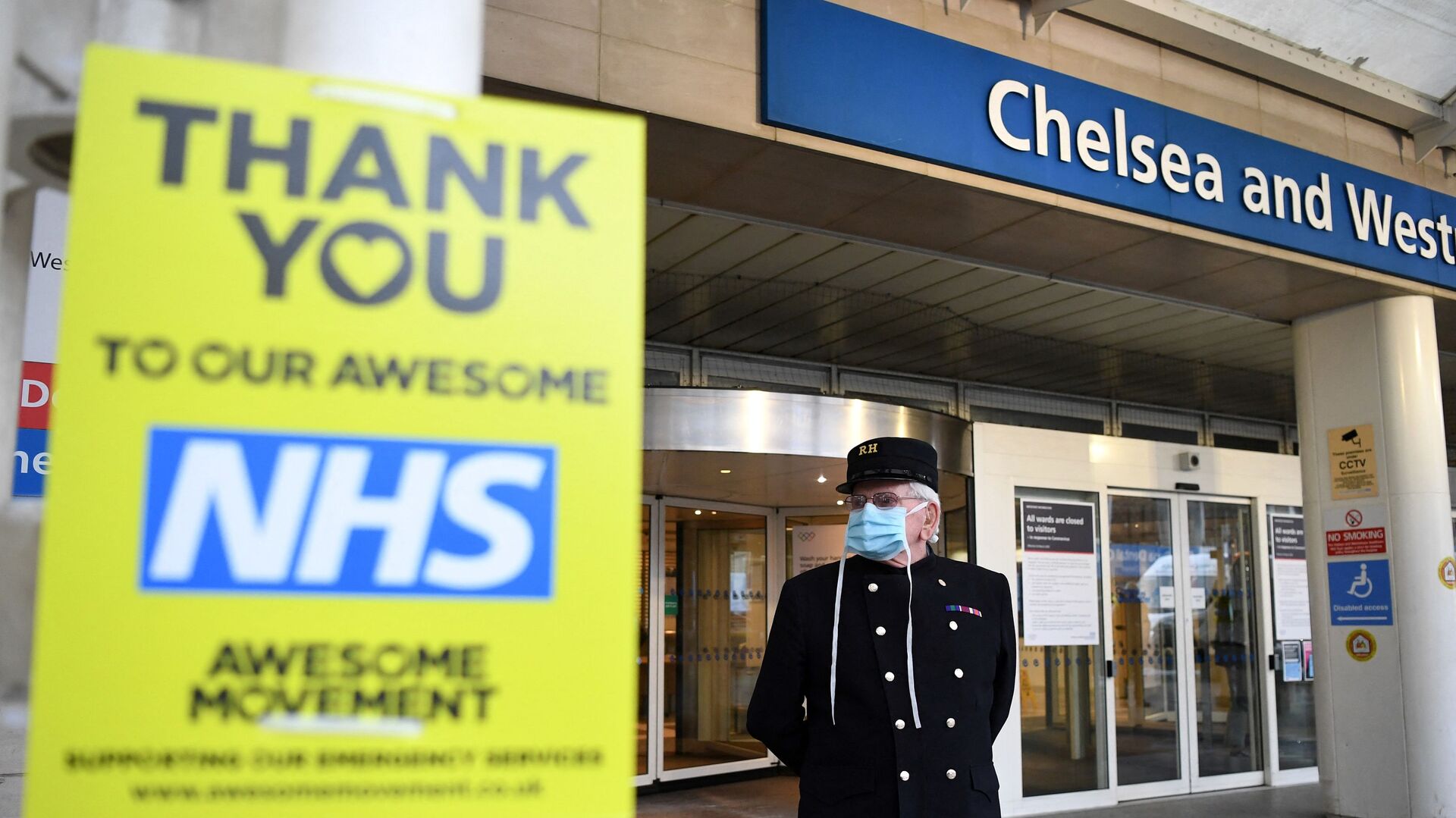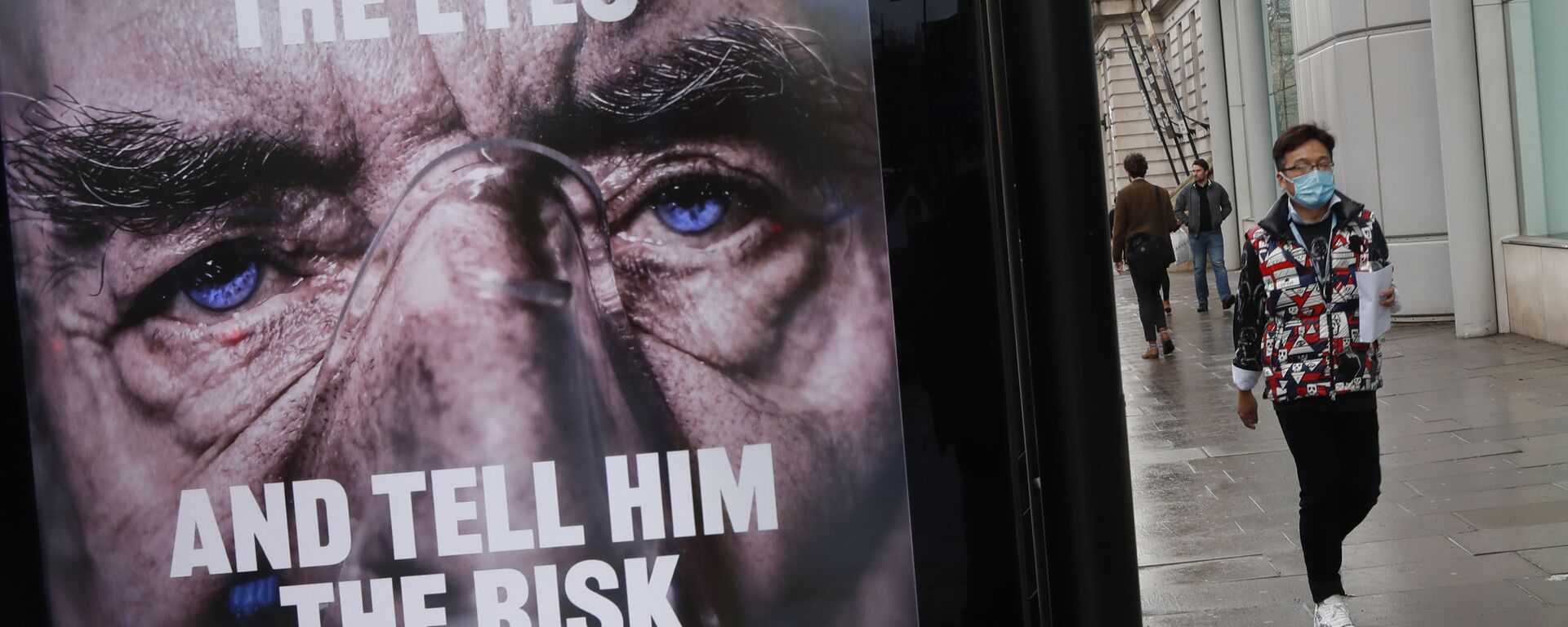NHS Faces ‘Sprint’ to Tackle Threat of Flu, New COVID Wave & Cost of Living Crisis, Health Sec Warns
06:04 GMT 08.08.2022 (Updated: 15:20 GMT 28.05.2023)

© AFP 2023 / DANIEL LEAL-OLIVAS
Subscribe
After A&E waiting times and ambulance delays hit record highs, with some 24,000 people forced to wait more than 12 hours in emergency departments in England in April, the National Health Service said in May that 3,500 more beds would be needed to avoid a “serious deterioration in the ratio of admissions”.
Steve Barclay, the recently appointed UK Health Secretary, has warned of the “very serious challenges” facing the National Health Service (NHS) in an interview with The Daily Telegraph.
With the looming triple threat of a seasonal flu, another likely wave of COVID-19 and the fall-out from the cost of living squeeze, Barclay said his department needed to make rapid decisions without waiting for a new Prime Minister to take over from Boris Johnson.
Since Johnson announced that he would resign, the Tory leadership contest to replace him has whittled those seeking to succeed him down to Liz Truss, the Foreign Secretary, and former chancellor Rishi Sunak. Truss is presently seen as a frontrunner to walk through the door of Number 10, Downing Street after the winner is announced on 5 September.
Barclay emphasized that hiring more staff from overseas was one of the pending decisions that could not be postponed as civil servants are predicting long waits at hospitals this winter.
Because of the increased demand NHS staff are expected to have to deal with, it is forecast that as few as six in 10 patients are likely to be dealt with at Accident and Emergency (A&E) departments within four hours.
“We have very real challenges coming down the track in the autumn and winter, and as far as I’m concerned there needs to be a real sprint within Whitehall, and particularly in the Department of Health, to get ready for September.”
According to the Health Secretary, it was imperative to prepare for “reasonable worst-case scenarios”.
Delighted to be back at @DHSCgovuk taking up the role of Health & Social Care Secretary.
— Steve Barclay (@SteveBarclay) July 5, 2022
Looking forward to working with fantastic @NHSEngland & social care staff.
Together we will beat the Covid backlogs, boost patient access & ensure health services deliver for everyone. https://t.co/PaFG8QzmU8
“Obviously those pressures can come in different forms. It might be you get a bad flu, it may be Covid rates are higher than we would expect or like. There’s an urgency of now to prepare, particularly in areas where there’s a long lead time. The decisions need to happen now, not wait until the autumn – by which time those lead times would put the resolution at too late a stage,” Barclay emphasized.
Need to ‘Move Quickly on Decisions’
Barclay vowed to ensure that Whitehall will “move much more quickly on decisions” and promised to “test the political risk appetite” among NHS bosses to prepare for looming pressures this winter, including an influx of patients to the health service.
As part of this approach, the Health Secretary has ordered civil servants to “work at pace” on proposals to “significantly increase” overseas recruitment of staff. This could result in thousands more healthcare workers arriving in Britain, with nurses hired from such countries as India, Sri Lanka and the Philippines. For that to work, Barclay added that foreign workers who have good nursing qualifications but whose English is not good enough to be employed in NHS hospitals, could be brought in.
At present the language requirement to work in nursing homes set by medical bodies is lower than the Government-determined one.
Government figures show that the social care sector is plagued by a severe lack of staff, with an estimated 105,000 vacancies that need to be filled. This is having a knock-on effect on hospitals, Barclay said, resulting in delays in discharging patients from wards to free up beds.
“We don’t want people delayed on the ward – that is a bad outcome,” Barclay stated.
We've committed more than £8 billion to beat the Covid backlogs and reduce waiting lists for NHS patients.
— Steve Barclay (@SteveBarclay) August 5, 2022
This includes supporting innovative robotics technology like the one I saw @UHNM_NHS which is already transforming the care provided to patients. pic.twitter.com/jxk0TVNKrD
As part of the scramble to tackle the issue, the UK government has lifted the cap on healthcare visas. Thus, data shows that 75,963 such visas were granted in the 12 months up to March, compared with 14,016 in 2021. India was cited as the biggest provider of workforce to the UK health sector (32,476), followed by Nigeria (11,102) and the Philippines (9,510).
Amid the cited concerns regarding the social care services, Victor, Lord Adebowale, chairman of the NHS Confederation, warned that a winter crisis was inevitable unless “immediate action” is taken to solve labor shortages.

